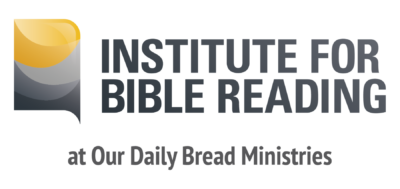*Note: This is a follow-up to What Is The Bible? If you haven’t yet read that, we suggest beginning there.
Accept the Bible’s Humanity and Divinity
If the Bible is simultaneously fully human and fully divine, we must honor this double nature equally and receive this mystery as a gift.
Then we must accept, learn, and account for the human elements of God’s communication to us – language, culture, history, and literature. These human-shaped writings are simultaneously enveloped with God’s presence, and they will impart that presence by giving us his word.
We can be assured that even though the words on the page were written by people, they are inspired by God and thus express his intentions for us, reveal our salvation, guide our living, and give birth to our hope.
Reading well will mean expecting God to speak, anticipating that the Spirit who first breathed these books will be active in and through them again, for us, now.
Receive the Bible as Literature
Since the Bible is a collection of different types of ancient literature, we must accept these compositions on their own terms. Our first obligation is to read them as complete works in their entirety. This should be done slowly, deeply, and at length, with a recognition that while the Bible was written for us, it was not written directly to us.
Next, we must accept the covenant offered by the authors, which is to interact with their writings according to the rules of the literary genre they’ve chosen. The Bible is a diverse, contoured book, and cannot be reduced to a “flat text” as if each part were identical. Hebrew poetry must be read in light of its parallel structure, apocalyptic visions must be seen as expressions of an ancient literary form, etc.
Reading the Bible well means working with the natural units of the text, and always engaging passages within their historical, cultural, and literary contexts.
Engage the Content as Narrative
As we read whole books within their natural context, a key practice is to look for and discover the emerging narrative of the Bible. The unique voice of each book must be recognized, but the song they sing together must also be heard. This means committing ourselves to learning the Bible’s history, specifically gaining an interest in the family of Abraham and its saga.
It is also imperative that we read the written Word in light of the revelation of the living Word of God, Jesus the Messiah. His saving work is the narrative center of the whole collection. It is the interpretive key that sheds light on all the rest. Jesus’ kingdom-inaugurating life, teaching, death, and resurrection is where we see God and his will for the world revealed most clearly.
The Bible presents itself as a grand narrative that all the other stories in the world fit into, and we must allow it to take on this stature. In our own lives, we give the biblical narrative pride of place and find the meaning of our own stories within it.
Take Part in the Drama
As we have seen, the Bible simply cannot be reduced to a divine instruction manual, inviting us to selectively pick out pieces of ethics, doctrine, or inspiration while ignoring large portions that don’t fit the model. Instead, God asks us to bring all of our gifts and abilities as divine image-bearers into his unfinished story, immersing ourselves in it and faithfully discerning how to carry it forward in our time and place.
Plainly stated, God calls us to improvise, using what we know about his story so far (and the hope we have for the future) to find faithful ways to speak and act our new creation roles in a world that doesn’t know about the resurrection. Living the Bible well means crafting lives that are fitting to God’s plan of redemption revealed in the gospel.
Finally, we cannot do this alone. We must engage God’s Word and craft our lives as members within communities of believers, praying for and listening to God’s Spirit speaking through each other. Together, as the body of Christ, we seek to offer our lives back to the Author of the script as works of steadfast beauty and as precursors of the fullness of the kingdom to come.


